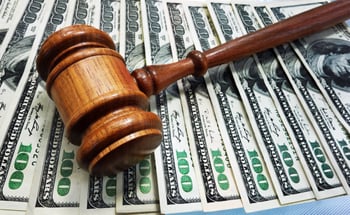Can You be Sued Over a Facebook Rant?
If you go on a Facebook rant over an inconvenience at your local Starbucks, nothing really comes of the matter. They’re a big company, the most they might do is reach out and offer a gift card. If this rant was related to a local business, however, your words may cost them greatly when it comes to attracting future customers.
Nick Olsen recently bought 75 beehives from Nancy and Keith Budke, who have been in the beekeeping business for over 40 years. Olsen later discovered that the bees all died in transport. How he chose to deal with it ended up costing him.
Olson took to Facebook to “out” the Budkes for selling him allegedly diseased bees. According to the Budkes, Olsen most likely killed the bees himself while he was handling them. Olsen’s Facebook post lost the Budkes a lot of business, they claimed, prompting them to file a libel lawsuit. In total, the couple won $370,000 from a jury in compensation for loss of business and legal fees.
What is Libel?
Libel is any published false statement that is damaging to a person’s reputation. It can also be known or referred to as defamation. It is different from slander, which is any oral false statement that is damaging to a person’s reputation. In the case of libel, “published,” means that a third party has heard or seen the statement. Writing a rant on Facebook falls under that definition.
To sue for libel, you need to prove several things:
- The statement is defamatory and false
- The statement is published
- The statement caused you injury
- The statement doesn’t fall into a privileged category, such as a witness statement
You need to prove all of these elements if you want to have a successful lawsuit.
According to the ACLU, 24 states have criminal libel laws on the books, in which you could either be jailed or fined on a criminal libel charge. One of these states is Minnesota, where Olsen and the Budkes are from. However, in this case, Olsen found himself in civil court.
While in the U.S. it is difficult to win a slander or libel lawsuit, it is very hard for prosecutors to prove a criminal libel charge. It is exceptionally difficult to prove that someone’s statement is false beyond a reasonable doubt in a way that wouldn’t be infringing on the First Amendment. Many of the states with criminal libel laws do not enforce them, or state courts have declared them unconstitutional.
Public vs. Private Persons
Had the Budkes been considered “public persons” though, such as celebrities or politicians, it would have been a lot harder for them to win their lawsuit.
Private people and public people are protected from libel in different ways. For a private person to prove libel, the publisher of the statement has to have acted negligently, meaning they got their facts wrong but could have known better. For a public person to prove libel, the published statement has to have evidence of malicious intent to defame a person’s reputation, which is why you often don’t see celebrities suing everyone for social media hate.
Social Media and Libel
When it comes to social media, the platforms themselves are protected by clauses in their terms and conditions agreement that you scroll through to access your content. However, libel is most common on social media platforms, which means that to gain compensation from online libel, you have to sue the person who originally posted (published) the defaming statement.






